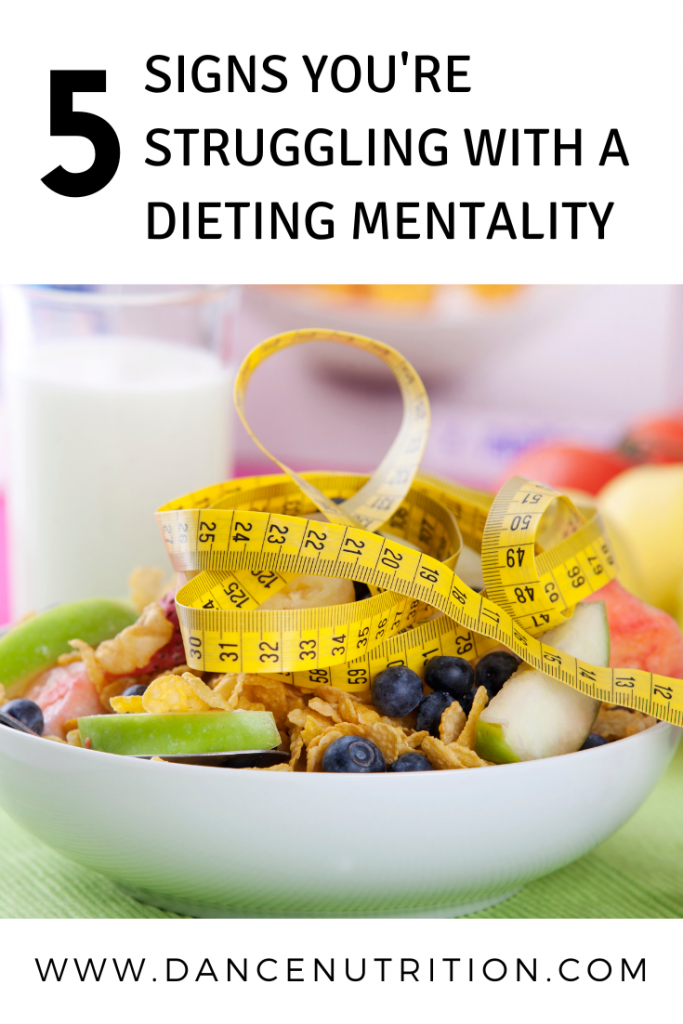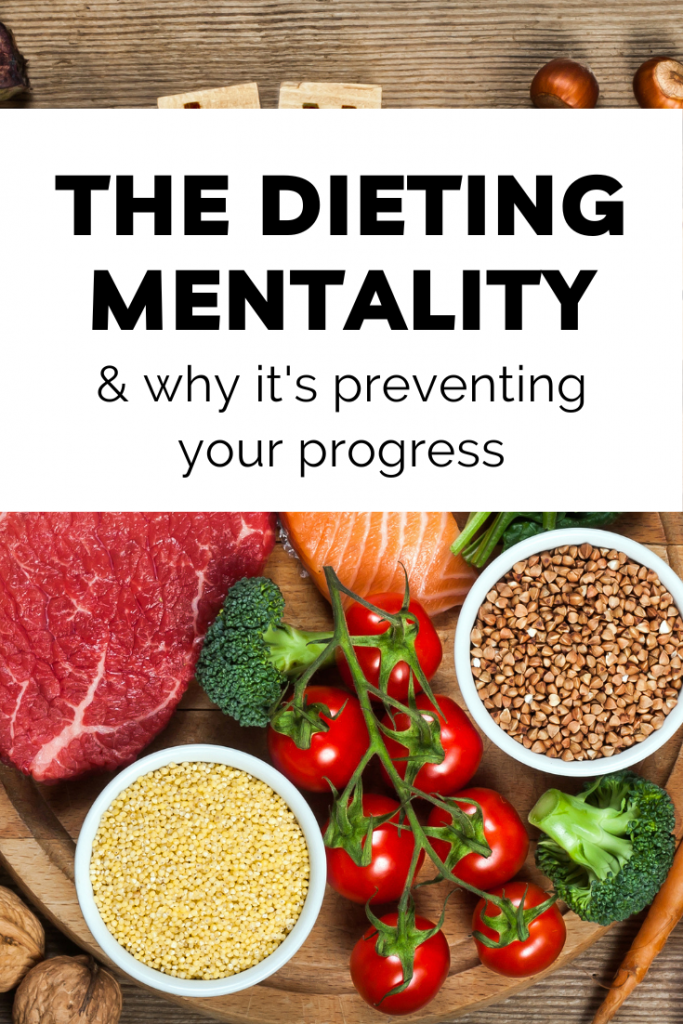Wellness culture is sneaky and oftentimes, seemingly harmless habits can disguise very disordered eating. I’ve previously written about how trends like “clean eating” or apps like Noom can make diet culture difficult to spot. But even beyond the obvious diets, there are subtler ways the dieting mentality can creep into a dancer’s life. These habits may look “healthy” on the surface, but they often interfere with energy, performance, and mental well-being.
That’s why it’s so important to learn how to recognize them. If you’ve ever wondered whether your routines are truly supporting you— or quietly holding you back— consider these five signs that the dieting mentality may be at play.
#1: Your Baseline Energy is Low
Dancers often associate eating more with losing control, and eating less with discipline and success. This mindset can become so ingrained that even surpassing a rough estimate of your intake brings on feelings of shame and guilt.
The problem? Under-fueling is normalized is the dance world. Whether it’s “moderation” or outright calorie counting, many so-called wellness tactics still boil down to restriction. Most structured diets prescribe daily calorie intakes similar to those seen in severely undernourished regions of the world— levels that simply don’t support the body’s basic metabolic demands let alone the energy needed for training and performance recovery.
If fatigue, brain fog, or irritability feel like your normal, it might be a red flag that your energy baseline is running too low. Curious about how many calories you actually need? Read more here.
#2: You Often Eat Past Fullness
Do you frequently end up uncomfortably full even when you didn’t plan to? This isn’t a lack of willpower; it’s your biology stepping in. When intake is chronically too low, your body activates powerful hormonal responses to fight the deficit. Surges of extreme hunger follow, often hitting hardest when food finally becomes available.
This pendulum swing— restriction followed by overeating— is not only exhausting but also makes dancers feel out of control around food. In reality, your body is just trying to protect you.
#3: You Experience Insatiable Cravings
Persistent cravings, especially for carb-rich or high-fat foods, are another sign your body is under-fueled. Carbohydrates are your brain’s and red blood cells’ primary source of energy. Restricting them, whether intentionally or by “cutting back,” can leave you drained and push your body to crave quick energy sources like sweets, bread, or pasta.
Instead of labeling these cravings as “bad,” recognize them as signals. Your body is telling you it needs more consistent and adequate nourishment, not more discipline.
#4: You Consider Yourself an “Emotional Eater”
Many dancers describe themselves as emotional eaters, but here’s the nuance: if your eating is triggered not just by emotions but also by underlying restriction, what you’re experiencing is rebound eating, not simply emotional eating.
Food can absolutely be a source of comfort, connection, and joy. The problem arises when guilt and food rules set the stage. Biological restriction heightens agitation, which in turn fuels emotional intensity, and food becomes the coping mechanism that fills the void.
Instead of pathologizing emotional eating, it’s worth asking: Am I truly eating in response to emotions, or is restriction driving the cycle? Understanding this difference can be the first step in reclaiming a balanced, compassionate relationship with food. (For more on this, read here.)
#5: You Unknowingly Follow Restrictive Food Rules
Not all restriction looks like skipping meals. Sometimes, it’s psychological. These are the subtle rules and beliefs about food that diet culture sneaks into your routine, shaping your thoughts about food, and often leading to overwhelming food guilt. Here are a few examples:
- Waiting until a “set” time to eat, even when hunger is present.
- Choosing smaller portions than you want to appear “disciplined.”
- Refusing to keep certain foods at home out of fear you’ll lose control.
- Over-exercising or restricting later to “make up” for eating something “bad.”
On their own, these behaviors might seem harmless and even normal. But collectively, they drain mental energy, create guilt, and perpetuate the dieting cycle.
#6: You Use Food as a Tool to Manipulate Your Body
Ever felt “gross” after a meal or labeled yourself as “bad” for eating too much? This kind of judgmental self-talk is a sign that food has become less about nourishment and more about body control.
These thoughts often stem from weight bias and the cultural pressure to achieve a smaller body. For dancers, it’s easy to believe that success depends on achieving a certain body type. But chasing this illusion can keep you stuck in cycles of restriction, guilt, and rebound eating.
Healing means dismantling the belief that your worth— or artistry— depends on size. It means allowing for body changes as a normal part of life and performance.
Dismantle The Dieting Mentality
Diet culture can be sneaky, especially when it’s dressed up as “wellness.” Dietitian Christy Harrison describes this as pseudo-recovery: when you’ve rejected traditional diets but are still caught in diet culture’s grip.
The good news: awareness is the first step. By spotting these patterns, you can begin to challenge them, fuel your body consistently, and reclaim food as a supportive, joyful part of your life as a dancer.
Inside The Healthy Dancer®, one of our very first core values is dismantling dancer diet culture. It’s the foundation for everything we do. If this resonates with you, then check out the program. You’ll access the education and ongoing support to move past dieting mentalities and step into a more sustainable, balanced approach.




